We live in the age of the pop culture revival, and the arrival of the eternal film and movie franchises, all born or borrowing from the model of superhero comics storytelling. Astro City, one of the most storied and beloved superhero comics of all time, went through a revival of its own in 2013, and that it came back as strong as ever was a miracle in and of itself. Over the course of a year, Charlotte Finn will be examining this miracle – all 52 issues – as she spends A Year in the Big City.
Getting old sucks.
I know this isn’t a startling original sentiment, but now that I’ve realized I have a favorite way of standing up from a sitting position that doesn’t cause any joints to make a click noise, I have realized the truth: something can be a cliché and be also amazingly Goddamn true.
There’s the famous quote about how Frank Miller realized that when he’d turned thirty, he was older than Batman, who was perpetually 29, and how that caused a shift in how he viewed the character; in “main” continuity, superheroes typically don’t grow old. They grow up sometimes, with Dick Grayson becoming Nightwing and Spider-Man getting married getting a real job, but they don’t typically grow old.
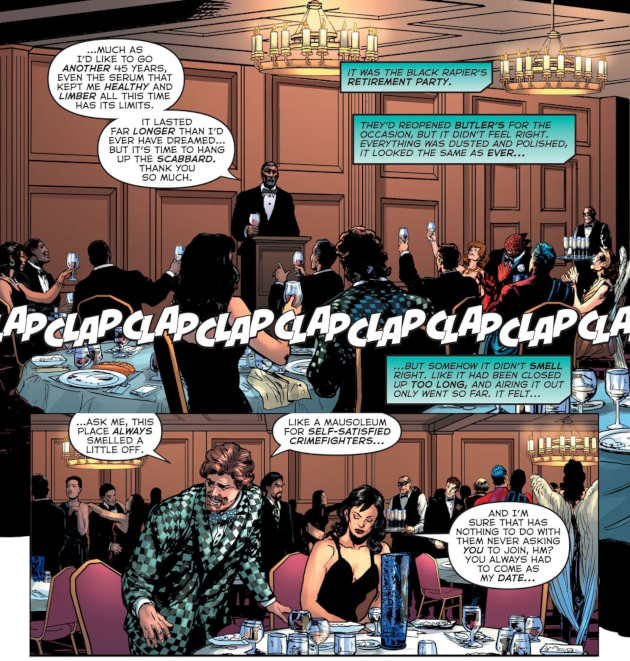
So really, a story about characters who’ve aged out of the game feels like it’s the story Astro City was meant to tell, with its commitment to real time; even then, such a story wouldn’t have an impact until the series had been around long enough to see characters grow older. So this might be the slowest burning story in comics history, as we get the final fate of Quarrel and Crackerjack.
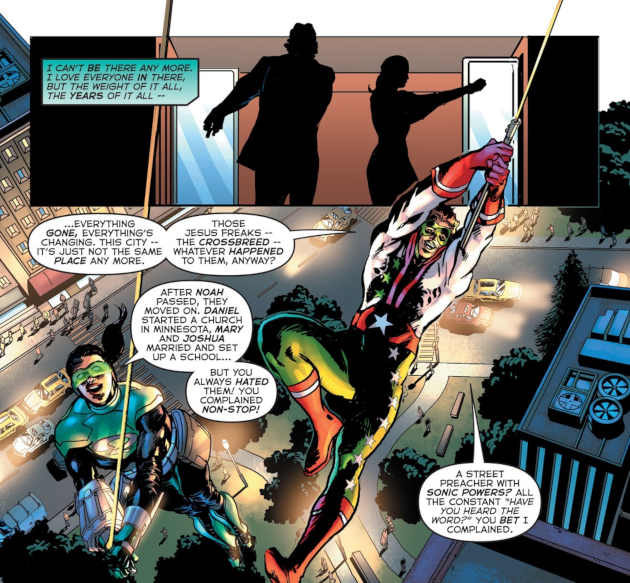
Fuckin’ Crackerjack.
Great name; okay costume; but what a butthead!! Crackerjack might be the most annoying in-universe superhero, the equivalent of that guy at the office who does work that he thinks is a home run and barely qualifies as a bunt. He dresses in an outfit that the Doctor would look at and say “aright, dial it back, bud” and he’s an obnoxious blowhard who sucks.
And I kind of like Crackerjack nonetheless, because he sucks, and he sucks in a fictional world instead of this one. Because I can exclaim “what a butthead!!” when I read his adventures the way I can’t at the office. He’s a guy it’s okay to hate, and that’s why I kind of like him.
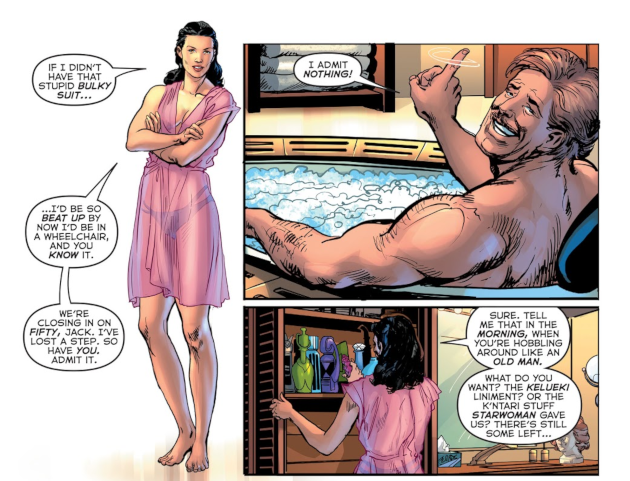
And Quarrel – who narrates the issue – clearly likes him too, and they’ve bonded over the unique superheroic ailment of getting too old to jump around dodging laser blasts any more. It’s not a fully realistic portrayal of the aging process, given that there’s super-science and magic keeping them in the game even after over twenty years, but it feels better than realistic – it feels resonant. I don’t jump around rooftops, but I have had to accept that I have to jump around a lot less these days regardless.
I try not to complain too much about The Kids These Days – I swore a pretty serious oath that I’d never treat the generation after mine, the way the media consensus of Generation X was treated by the generation before us. But I do have to relate a little to Crackerjack’s grumpiness that the Chessmen aren’t staying in theme any more by branching out into non-chess related crimes. What’s the point of a supervillain that won’t stick to a gimmick?
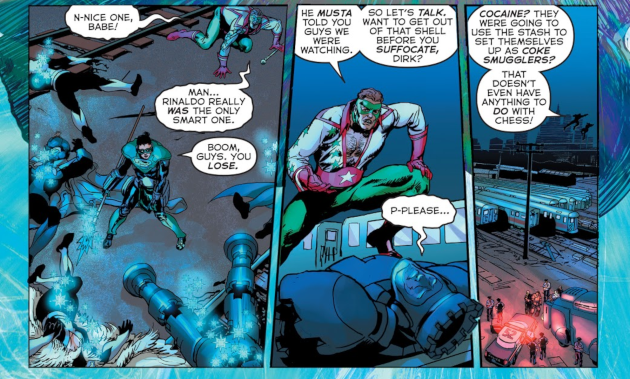
As Quarrel unwinds, she remembers her origin, growing up dirt-ass poor in Kentucky with a father who she thought the world of, who just happened to moonlight as a supervillain named Quarrel, whose million-dollar gains never made their way back home. Once she realizes who he is, she eventually gravitates towards taking his equipment and training with it, becoming the second Quarrel – for reasons that could be complex, or just unclear.
Her father warns her away from it, so this might all be an act of rebellion. Perhaps she wants, in some way, to redeem the family name in a way that leaves no doubt as to whose name is being redeemed. Maybe she just likes to do backflips and shoot darts but has a firmer innate moral compass than her father. Maybe it’s all of them, because no one does anything for just one reason. Maybe it’s none of them, and her life is defined by the damaged men in her life a little more than she’d like to admit. (I hope it’s not this, because ~daddy issues~ can get a little boring.)
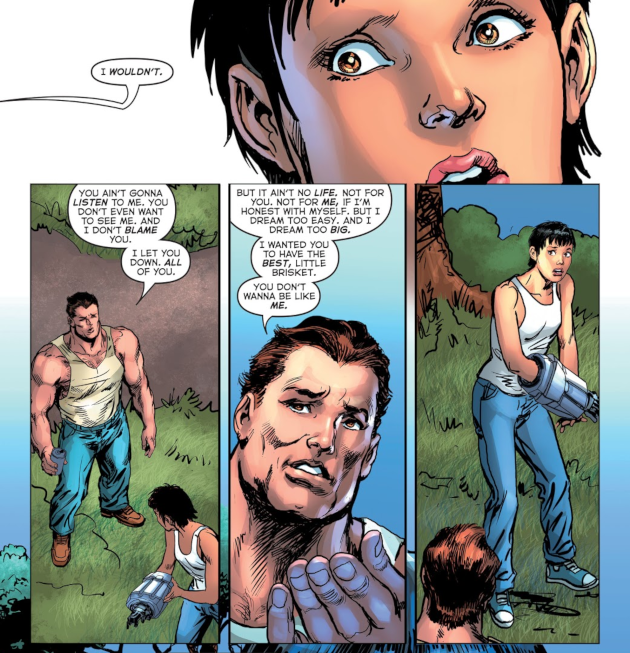
Busiek has long stated that Quarrel was his favorite, and it’s interesting that we’re finally getting into why, at this late stage where it’s clear she’s not long for the superhero game. “How’s it all going to end,” she keeps asking herself.
It doesn’t end next issue, but things are destined to get worse before they get better, as this story is due to delve deeper into what it takes to be a street-level superhero with no powers in a world of jet-powered apes and time travel. All in (hopefully) a week’s time. See you then!

Leave a Reply